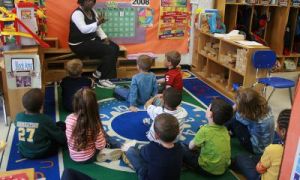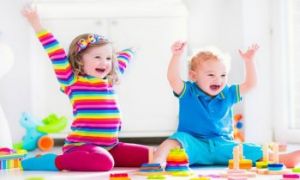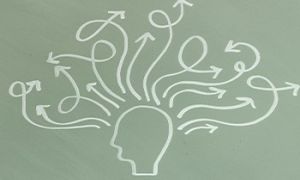Preparing children for the leap into formal schooling involves more than academic knowledge—it means supporting their holistic development across cognitive, social, emotional, and physical domains. This checklist supports educators and families in identifying foundational skills and strengths, in alignment with the Early Years Learning Framework (EYLF) outcomes and contributing toward Quality Improvement Plan (QIP) goals such as practice refinement, documentation, and improved transition planning.
Cognitive & Early Academic Skills
EYLF Outcome 4 – Children are confident and involved learners
- Recognizes basic shapes and colors
- Counts to at least 10 and understands quantity
- Identifies some letters and numbers
- Recognizes own name in print
- Matches and sorts objects by category
- Understands simple patterns and sequences
Language & Communication
EYLF Outcome 5 – Children are effective communicators
- Speaks in full sentences and is understood by others
- Follows two-step directions
- Asks and answers questions
- Retells simple stories or events
- Engages in conversations with peers and adults
- Recognizes rhyming words and beginning sounds
Fine Motor Skills
EYLF Outcome 3 – Children have a strong sense of well-being.
- Holds pencil or crayon with control
- Cuts along lines with scissors
- Traces shapes, letters, or numbers
- Draws basic figures (e.g., person with head, body, limbs)
- Manipulates small objects like beads or buttons
Gross Motor Skills
EYLF Outcome 3 - Children have a strong sense of well-being.
- Runs, jumps, hops, and climbs confidently
- Throws and catches a ball
- Balances on one foot for a few seconds
- Moves rhythmically to music
Social & Emotional Development
EYLF Outcome 1 – Children have a strong sense of identity
EYLF Outcome 3 - Children have a strong sense of well-being.
- Separates from caregiver with minimal distress
- Shares and takes turns
- Expresses emotions appropriately
- Follows classroom routines
- Shows interest in group activities
- Demonstrates independence in self-care (e.g., toileting, dressing)
Creative Expression
EYLF Outcome 4 - Children are confident and involved learners
EYLF Outcome 5 - Children are effective communicators
- Engages in pretend play
- Uses art materials to express ideas
- Sings songs and participates in group music activities
- Tells imaginative stories
Practical Independence
EYLF Outcome 3 - Children have a strong sense of well-being.
EYLF Outcome 1 - Children have a strong sense of identity.
- Packs and unpacks own bag
- Recognizes belongings
- Uses lunchbox and water bottle independently
- Understands basic safety rules
By nurturing these foundational skills, educators and families play an essential role in shaping confident, capable learners who are ready to thrive in their school journey. This checklist is not about ticking boxes—it’s about celebrating each child’s unique pathway and ensuring the transition to school is empowering, inclusive, and emotionally safe. When readiness is approached with intention and shared responsibility, every child is given the chance to step into their next chapter with pride and excitement.
Further Reading
How To Prepare Preschoolers For School - School Readiness Guide For Educators
School Readiness Program
What Is School Readiness
School Readiness In Early Childhood
How Play Based Learning Supports School Readiness
Supporting Children's Transition To School
Pre-Writing Skills Activities For Preschoolers
Importance Of Pre-Writing Skills


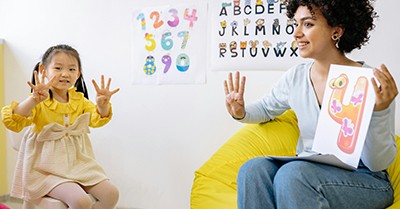
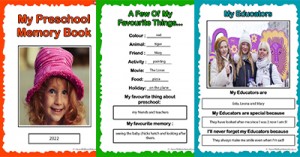
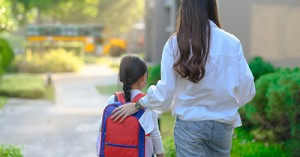
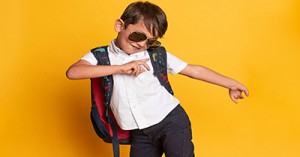
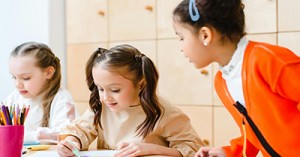
 Toddlers have a greater understanding of the world around them by this stage. Their cognitive development (also known as intellectual development and thinking skills) continues
Toddlers have a greater understanding of the world around them by this stage. Their cognitive development (also known as intellectual development and thinking skills) continues Infants begin to develop trust when parents begin to fulfil their needs. Such as changing an infant's nappy when needed, feeding on request and holding
Infants begin to develop trust when parents begin to fulfil their needs. Such as changing an infant's nappy when needed, feeding on request and holding Beginning at birth the construction of thought processes, such as memory, problem solving, exploration of objects etc, is an important part of an infant’s cognitive
Beginning at birth the construction of thought processes, such as memory, problem solving, exploration of objects etc, is an important part of an infant’s cognitive Toddlers want to do more on their own and do not like it when you begin to establish limits on their behaviour. Tantrums can become
Toddlers want to do more on their own and do not like it when you begin to establish limits on their behaviour. Tantrums can become Your preschooler is now able to focus their attention more accurately and is less influenced by distractions. The intensity of questions increase as your child
Your preschooler is now able to focus their attention more accurately and is less influenced by distractions. The intensity of questions increase as your child John Dewey is often seen as the proponent of learning by doing – rather than learning by passively receiving. He believed that each child was active,
John Dewey is often seen as the proponent of learning by doing – rather than learning by passively receiving. He believed that each child was active, Toddler advance and gains new skills in Gross Motor Development milestones achieved throughout earlier years. Co-ordination and challenges that could not be performed before such
Toddler advance and gains new skills in Gross Motor Development milestones achieved throughout earlier years. Co-ordination and challenges that could not be performed before such Erik Erikson developed a psychosocial theory to understand how we each develop our identities through eight stages of psychosocial development from infancy to adulthood. The
Erik Erikson developed a psychosocial theory to understand how we each develop our identities through eight stages of psychosocial development from infancy to adulthood. The At this point preschoolers begin to interact effectively with others. Play becomes more innovative and organized and “boyfriend” or “girlfriend” begins to emerge. Preschoolers have
At this point preschoolers begin to interact effectively with others. Play becomes more innovative and organized and “boyfriend” or “girlfriend” begins to emerge. Preschoolers have From now, babies begin to identify and respond to their own feelings, understanding other's feelings & needs and interact positively with others. A baby's social and
From now, babies begin to identify and respond to their own feelings, understanding other's feelings & needs and interact positively with others. A baby's social and